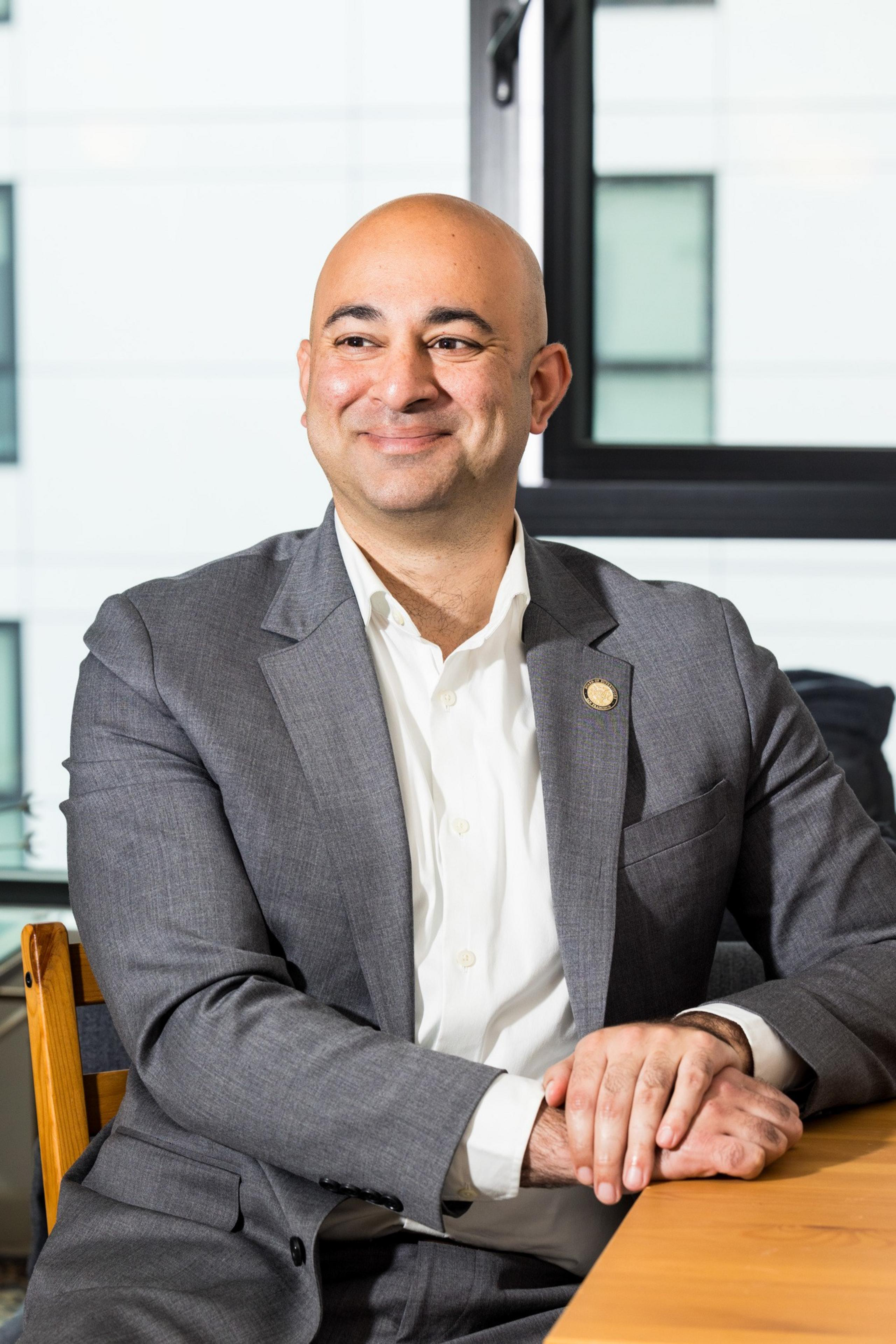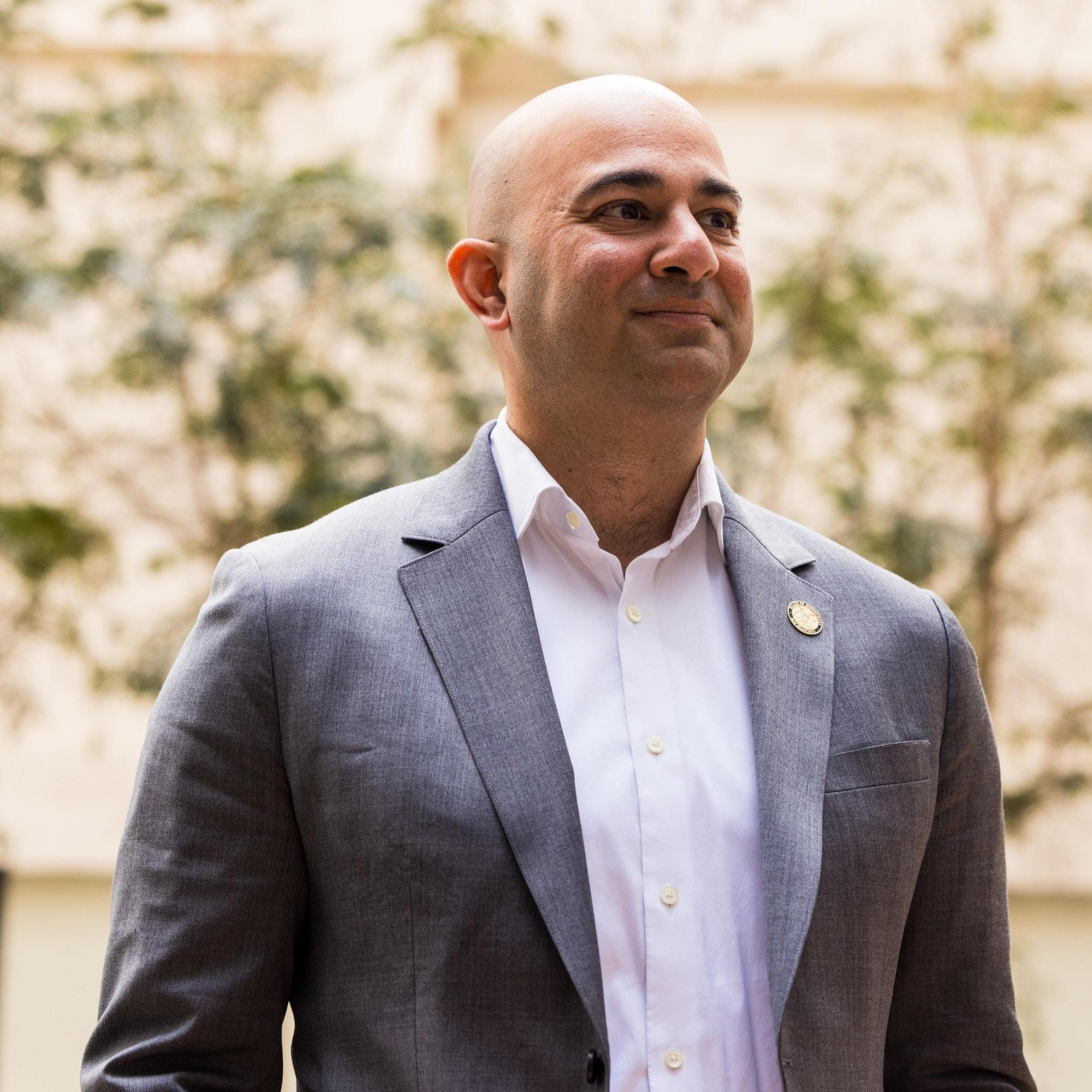Growing up, Bilal Mahmood knew he was different. He struggled with making eye contact, shaking hands, and hugging others. Building friendships didn’t come easily.
In 2021, when he entered San Francisco politics — a world that demands constant social interaction and public speaking — he sought medical help, and in his mid-30s, he was officially diagnosed with Level 1 autism, a mild form of the disorder that affects his communication, behaviors, and ways of thinking.
“There are a lot of misconceptions about autism, and we’re seeing a trend of more people sharing their personal stories,” Mahmood told The Standard in an interview. “We have to destigmatize autism.”

April is Autism Awareness Month, and the newly elected District 5 supervisor, who represents the Tenderloin, Fillmore, and Japantown, is expected to discuss his autism diagnosis at the Tuesday board meeting and plans to use his own history to bring attention and resources to the often-overlooked neurodivergent community.
Discrimination in politics?
A tech entrepreneur, Mahmood lost a bid for state Assembly in 2022 but won a seat on the Board of Supervisors in 2024. In private conversations during those campaigns, he said, he was “taken aback” by questions about his ability to hold public office as an autistic person.
“I think that was a little jarring,” Mahmood said. “It was one of the first times I ever felt discriminated against in that context.”
While Mahmood has adapted to the classic “shaking hands, kissing babies” side of politics, he doesn’t consider his diagnosis a disability — rather, a different style of functioning. Mahmood also revealed that he’s highly sensitive to scheduling: minor disruptions can cause stress, a common trait among people with autism.
As a child, he was obsessed with encyclopedias and found it hard to process fictional stories.
“I’m extremely literal. Sarcasm is really difficult for me,” he said.
By sharing his diagnosis and introducing a resolution to raise awareness of autism, Mahmood hopes to empower others on the spectrum. He points out that many autistic individuals have unique strengths, such as the ability to focus and think deeply.
Mahmood may be the first elected official in San Francisco history to publicly disclose an autism diagnosis. In 2021, Pennsylvania lawmaker Jessica Benham became one of the first in the country to do so (opens in new tab), revealing she’d been diagnosed with autism in college.

As San Francisco faces budget cuts, Mahmood wants to see continued funding to support youth with disabilities, especially through the Department of Children, Youth and Their Families.
He recently attended a town hall hosted by The Arc, an organization funded by the department that supports individuals with intellectual and developmental disabilities. He described the disabled community as the city’s most vulnerable group, whose members must fight for basic needs, like accessible Muni service. Mahmood said the city must protect these essential lifelines.
The Arc partners with the San Francisco Unified School District to support youth with disabilities as they transition from high school to college, employment, and independent living. According to a state audit, autism diagnoses within SFUSD have steadily risen over the past five years and affect approximately 1,800 students.
In response, the district has expanded its special education services.
“Our students who receive special education services deserve nothing less than a system that works for them,” said Superintendent Dr. Maria Su, describing the changes as long overdue.
Mahmood, who turns 38 this month, said he wishes he had learned more about autism when he was younger but believes it’s never too late to step up for the next generation.
“We can give them the supportive learning environment I never had growing up so they can unlock their full potential earlier than I was able to,” he said.


